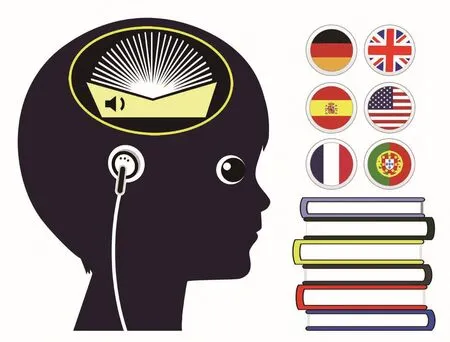Learning Chinese: A Reflection from an American Born Chinese
2018-05-15ByGraceChen
By Grace Chen
学习语言并不容易,但其中妙处在于能与来自不同文化背景的人们相互交流,建立友谊。身为美籍华裔的我生活在英文为主的语言环境中,说着所谓的“中式英语”,对学习中文别有一番体会。
Irecently found myself in a dilemma while editing my resume in preparation for job interviews and graduate school applications: should I put Mandarin as one of the languages that I speak? While part of me believes that I understand about 96 percent of what people say to me, the other part knows that if someone asked me to translate, it would be a complete disaster.
My speaking skills in Mandarin are equivalent to a third grader, and I can barely read simple characters. My penmanship looks like somebody closed their eyes and tried to write with their non-dominant hand. However, people are constantly impressed with my ability to read and type pinyin almost fluently—in fact, I find myself texting important information and secrets to my fellow ABC (American Born Chinese) friends in pinyin, like a secret code, or using it when asking my parents questions that are not able to be translated in English.
Pinyin, to me, is easy because it uses the English alphabet to help facilitate communication in Chinese and is primarily used to help children and beginners learn languages. Similarly, I am like pinyin; I have both Eastern and Western influences, being of Asian descent and holding an American citizenship. The cultural clash became most evident as I was doing what many readers are doing,too—learning a different language.
My parents joke that I have been trying to learn Mandarin since birth. It is no secret that I am not comfortable speaking in Mandarin; this is perhaps a result of being surrounded by English everywhere,whether at school, in the grocery store, or even on the television. I naturally became accustomed to speaking English because everybody else was doing it.

Though my parents and grandparents speak Mandarin at home, I found myself struggling with communication from a young age. There are home videos of a miniature version of me, singing songs with my grandmother in Mandarin, and then quickly switching to sing the same song in English with my older brother.
There are many reasons why I am not comfortable using Mandarin—I am insecure about my accent and do not know enough vocabulary. Worst of all,I dread being teased by adults or peers who question if I even know what they are saying.
Today, I find myself speaking sentences primarily in what ABCs have endearingly dubbed Chinglish, a sort of hybrid mixture of Chinese and English. While I am told that this phrase means something completely different in China, it is essentially the universal language of the average ABC here in the United States—sentences usually contain an abundance of English, with a generous sprinkle of Mandarin or even Cantonese every few words. This can be reversed as well, depending on who you are trying to communicate with.Almost every single ABC I know is comfortable, even fluent, in this amusing hybrid language.
ABC Chinglish is easy to use because it gets the point across—you can communicate with anyone that speaks a little bit of both languages, and it may even help with understanding verbs, adjectives, and sentence structures. Personally, because I am fluent and comfortable in English, a majority of my Chinglish sentences are in English. One can use ABC Chinglish when talking to their parents, loved ones, or anybody asking about the following questions: their future careers,how to use technology, why they are still single, when they are getting married, or any other topic that is somehow deemed interesting by nosy aunties.
In all seriousness, practicing using both languages may be a segue into becoming fully bilingual, as long as one does not become too reliant on it. Here are some funny examples that I have overheard my friends say to their parents on the phone:
Chinglish Words Spoken: 我可以 get 一个 dog 吗?
English Translation: Can I get a dog?
Chinglish Words Spoken:我drink too much 咖啡,整天在找bathroom…
English Translation: I drink too much coffee, I’m always looking for a bathroom…

It also occurred to me that some readers may take classes to learn English. Similarly, a rite of passage for ABCs is going to Chinese school as a child to take classes to promote fluency in Mandarin, perhaps even joining the Chinese dance team or Chinese yo-yo team as well.Without a doubt, every single ABC that I know has a handful of hilarious memories regarding their dislike for Chinese school.My own stories involve secretly trading cookies with other students while whispering in English in secrecy almost equivalent to underground trading; this was a surefire way to be put in time-out and earn a long-winded phone call to the parents.
Grace’s Tip of the Day for Learning a New Language:Watch TV or listen to some music with translation,especially something that you enjoy!
My roommate once ran away from Chinese school by hiding in her mom’s car, sparking a citywide search for her. She simply rolled around in the trunk as her parents drove around town,searching frantically for their missing daughter, who hid silently because she did not want to attend Chinese class.
There were many nice teachers,but there were also strict teachers who scared students by saying that their careers would be at their local McDonald’s if they could not speak Mandarin properly.However, the two things that almost every ABC remembers are the awesome snacks (American junk food), and the friends that they made.
I believe that a true bond of friendship is made when people suffer together, and Chinese school is a prime example. Not only was it difficult and stressful,it felt more taxing than our actual school classes. The friendships formed made the hours of studying and stress worth it.These friends were easy to make because they were all ABCs as well, and had similar struggles in communication and learning.
Even though we were young,we would study vocabulary together, encourage each other as we struggled to write in-class essays, and celebrate when our final exams were over. Therefore,I encourage people learning different languages to make new and supportive friends to bond with throughout the trials, to rejoice with in success, and to have fun with while learning.
Learning a new language is difficult, but one of the best moments is being able to communicate with a new person.I found that my years of Chinese school and attempting to speak Mandarin at home paid off when I became a camp counselor and met some girls from Taipei, who did not speak English. I managed to translate for them and became their friend, even joking around and bonding with them over music and TV shows.
Even though we were from different places and were different ages, I saw the universality and power of language by breaking the barriers between us. While my Mandarin definitely wasn’t perfect, and their English wasn’t strong, we managed to create a friendship simply by trying to communicate.
If you keep on working hard,and get back up when there are mistakes, difficulties, or trials in communication that you face, one day, you will be able to communicate with new people, make connections and friendships, and change the world. ◆
